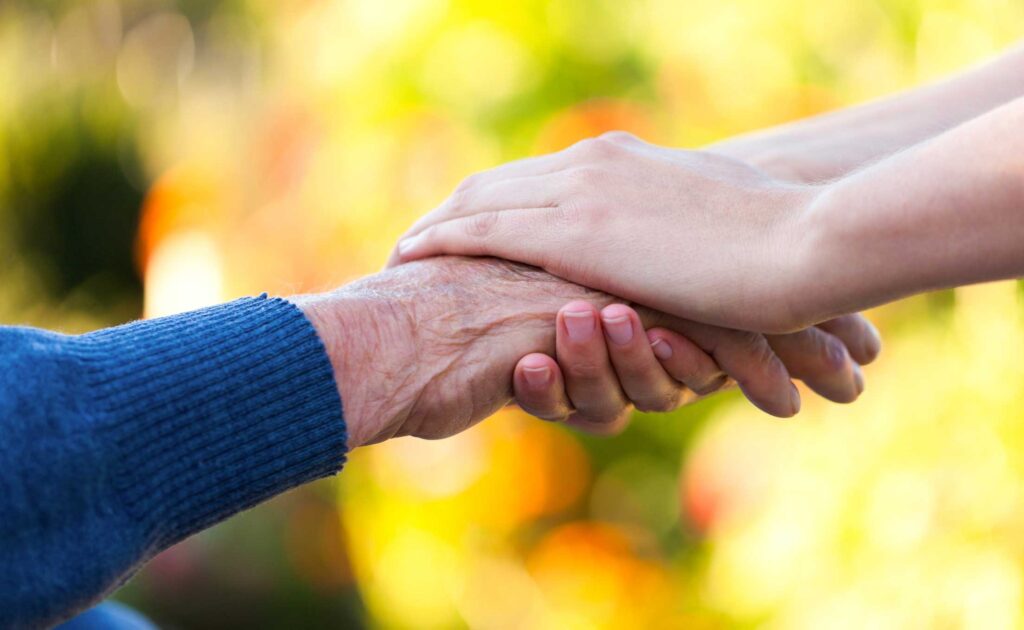February 8, 2025

Caring for loved ones is a noble and selfless act of love. With a growing senior population, the number of people taking on such care duties is expected to increase. However, the responsibilities that come with this role can unbalance a caregiver’s life, leading to something known as caregiver burnout.
Fortunately, the experienced and caring teams at modern retirement communities can help.
Keep reading to learn about caregiver burnout, its causes and symptoms, and how a senior living community like Kendal on Hudson can help.
What Are the Symptoms of Caregiver Burnout?
As caregivers become responsible for managing a loved one’s activities of daily living (ADLs), they often feel obligated to do their very best. However, family caregiving can present unanticipated challenges when meeting the health care needs of an older adult.
Recognizing the signs and symptoms of caregiver burnout is crucial if you want to provide the best possible care for your loved one. These symptoms include:
- The things that once excited you have become less interesting.
- Withdrawal from family and social circles.
- Experiencing health problems, like constantly feeling sick.
- Feelings of anger, hopelessness, or exhaustion.
- Weight gain or loss.
- Changes in your sleep pattern or difficulties sleeping.
- Growing resentful of your loved one.
Caregiving often means sacrificing free time, income, and personal schedules. Despite the best intentions, hopelessness and guilt can still set in. It’s easy to forget about your own needs while focusing on caring for a loved one.
What Causes Caregiver Burnout?
Caregiver burnout is a state of physical, emotional, and mental exhaustion that can occur when the demands of caregiving become overwhelming. Understanding the causes of caregiver burnout is essential to prevent and manage it effectively. Here are some common factors that contribute to caregiver burnout:
Emotional and Physical Overload
Caregiving often requires managing numerous tasks, from daily living activities to medical care. The constant responsibility can lead to emotional and physical exhaustion. Caregivers may neglect their own health and well-being as they focus on their loved ones, leading to burnout.
Lack of Support
Many caregivers feel isolated and unsupported. Without a robust support system of friends, family, or professional aides, the burden can become too much to bear. Support groups and respite care services can provide much-needed relief, but many caregivers do not have access to these resources.
Financial Stress
The cost of caring for a loved one can be significant, leading to financial strain. Many caregivers also sacrifice their own income and career opportunities, exacerbating the financial burden and contributing to stress and burnout.
Unrealistic Expectations
Caregivers often set high standards for themselves, striving to provide perfect care. These unrealistic expectations can lead to feelings of inadequacy and guilt when they are not met, further contributing to burnout.
Role Confusion
Transitioning from a family member to a caregiver can create role confusion and strain relationships. The shift in dynamics can lead to stress and emotional turmoil, making it difficult to balance caregiving duties with maintaining personal relationships.
Lack of Control
Caregivers may feel a lack of control over the situation, especially when dealing with progressive illnesses like Alzheimer’s or other forms of dementia. This feeling of helplessness can contribute to frustration and burnout.
Chronic Health Conditions
Caregivers who have their own health issues may find it particularly challenging to manage both their physical health and their caregiving responsibilities. This dual burden can accelerate the onset of burnout.
Social Isolation
The demands of caregiving can lead to withdrawal from social activities and relationships. This isolation can increase feelings of loneliness and depression, which are significant contributors to burnout.
Recognizing these causes can help caregivers take proactive steps to manage stress and seek the support they need to maintain their well-being while providing the best possible care for their loved ones.

How Can You Recover from Caregiver Burnout?
It’s okay to feel run-down, and you’re not alone. Between 2015 and 2020, the number of caregivers in the United States increased significantly, from 43.5 million to about 53 million, which means over 20% of Americans are now caregivers. By 2030, the elderly population is expected to reach 73 million, with Americans aged 65 or older forming a substantial portion of the population.
Despite those numbers, you have some practical options to help you stay grounded and in touch with yourself. Here are some things you can do to recover from burnout and prevent it in the future:
Be Careful Not To Overextend Yourself
When a loved one is in need, it’s easy to put more pressure on yourself than you can handle. Overextending yourself can lead to exhaustion and burnout. Set realistic limits and recognize your own needs and limitations. Life Plan Communities, like Kendal on Hudson, can provide expert, necessary care, helping to alleviate some of the burden from your shoulders.
Ensure You Have Adequate Resources and Support
There are limits to the quality of care your loved one can receive when they’re aging in place. By contrast, a community like Kendal on Hudson is fully equipped with specialized accommodations in higher levels of care, such as Assisted Living and Memory Support. Additionally, tapping into support groups and hiring home health aides can offer essential assistance and respite.
Expect the Unexpected, But Be Realistic
At the start of your caregiving journey, you might have idealistic expectations. While aiming for positive outcomes is important, it’s also crucial to remain realistic about the challenges and unpredictable nature of age-related health conditions. Preparing for these challenges can help you manage stress and adjust your caregiving strategies accordingly.
Be a Better Caregiver by Taking Care of Yourself
Caregivers often sacrifice their own needs and interests, which can lead to a decline in their well-being. To provide the best care for your loved one, you must also take care of your own physical, emotional, and mental health.
This means making time for activities you enjoy, seeking professional help when necessary, and not hesitating to rely on friends and family as part of your support system. Taking care of yourself ensures that you can continue to offer high-quality, loving care.

What Kendal on Hudson Can Do for Your Loved One
You may have heard the term “Life Plan Community.” Welcome to Kendal on Hudson, Sleepy Hollow’s newest Life Plan Community. A Life Plan Community offers senior living communities offering lifestyle amenities, including wellness centers, lifelong learning programs, first-class dining options, and a full suite of care services for residents in case health needs change over time.
Additionally, there are significant health benefits of moving into a senior living community, including improved socialization, access to healthcare, and a supportive environment conducive to overall well-being. Kendal on Hudson provides opportunities for residents to engage in activities that enhance their physical and mental health, offering exercise classes, social events, and more.
Nestled in the Hudson woodlands, we offer Independent Living along with a full continuum of care, including Assisted Living, Memory Support, Skilled Nursing and Rehabilitation. For family members feeling overwhelmed, respite care options are available to provide temporary relief, ensuring that both the caregiver and the loved one receive the care they need.
By joining a community like Kendal on Hudson, caregivers can find peace of mind knowing their loved ones are well cared for, while also allowing themselves the time to recover from caregiver burnout and maintain their own health.
